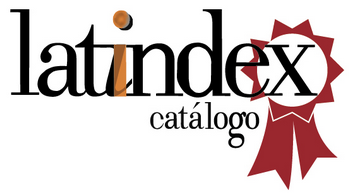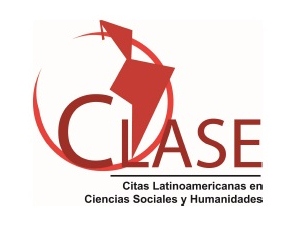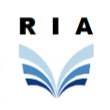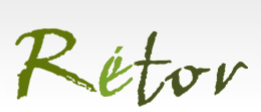Algunas relaciones entre los problemas filosóficos
Traducción Fernando Leal Carretero
Resumen
Note of the editor. In other publications, I have been trying to make people aware of the importance of questions for the theory of argumentation. This is the reason for publishing the present paper in this journal. Its author is professor in the Department of Logic and Cognitive Science at Adam Mickiewicz University in Poznań, Poland, and a well-known pioneer in the field of erotetic logic, a branch of formal logic in which questions are subject to strict logical analysis. This paper was originally written in Polish and published in the journal Studia Filozoficzne [Estudios Filosóficos], núm. 8–9 (213–214), pp. 211–225, in 1983. It thus represents a very early phase in Professor Wiśniewski’s research. The reader who wants to know the current logical position of the author should consult his book Questions, Inferences, and Scenarios (London, College Publications, 2013) or his most recent papers available in his website (http://andrzejwisniewski.edu.pl/). In spite of its being outdated within Wiśniewski’s work, this paper is well worth making it available in English both because of the high quality of its arguments as well as because it deals directly with philosophical questions, whereas the bulk of its author’s work deals with questions in general, without any special attention to philosophical questions. The perceptive reader will notice that the author relies throughout on the celebrated tradition of Polish formal logic. Although some of his references may be obscure to us, I trust that the content of the papers is perfectly clear and useful. As for the translation, it was done in three steps: (1) two different pieces of software were used, the Google translator and DeepL, going carefully through each sentence and each paragraph; (2) the two translations were compared with each other and with the original at all points, trying to recover as many linguistic nuances as possible and eliminating errors due to the technical character of the discussion; (3) a clean draft was sent to Professor Wiśniewski for review and correction. The present versions has thus been amended and approved by the author himself, to whom we are very grateful for the permission to publish it. (Fernando Leal.)Citas
Ajdukiewicz, K. (1923). Główne kierunki filozofii w wyjątkach z dzieł ich klasycznzych, przedstawicieli: Teoria poznania, logika, metafizyka. [The main directions of philosophy in the excerpts from classical works: Theory of knowledge, logic, metaphysics.] Lwów.
––– (1960). Zdania pytajne. [Interrogative sentences.] In: Język i poznanie. [Language and knowledge.] Vol. 1. Warsaw. [Engl. transl. The Scientific World-Perspective and Other Essays 1931-1963, pp. 155-164. Dordrecht, Reidel, 1978.]
Cackowski, Z. (1964). Problemy i pseudoproblemy. [Problems and pseudo-problems.] Warsaw.
Gadamer, H.-G. (1979). Rozum, słowo, dzieje: Szkice wybrane. [Reason, word, history: Selected sketches]. Warszawa. The reference is to the article ‘Was ist Wahrheit?’ [‘What is truth?’], published in 1955.
Giedymin, J. (1964). Problemy, założenia, rozstrzygnięcia. [Problems, assumptions, solutions.] Poznań.
Ingarden, R. (1962). Spór o istnienie świata. Warsaw. [Engl transl. Controversy over the existence of the world, Vol. 1. Frankfurt am Main: Peter Lang.]
––– (1971). U podstaw teorii poznania. [The foundations of the theory of cognition]. Warsaw.
––– (1972). Pytania esencjalne. [Essential questions.] In: Z teorii języka i filozoficznych podstaw logiki. [On the theory of language and the philosophical foundations of logic.] Warsaw. [German version: Essentiale Fragen. Ein Beitrag zum Problem des Wesens, Halle, Max Niemeyer, 1925.]
Kmita, J. (1977). Wykłady z logiki i metodologii nauk. [Lectures on logic and the methodology of science.] Warsaw.
Kubiński, T. (1969). Analiza logiczna pojęcia założenia pytania. [Logical analysis of the concept of the presupposition of a question.] In: L. Gumański (Ed.), Rozprawy filozoficzne, pp. 192–197. Toruń.
––– (1971). Wstęp do logicznej teorii pytań. [An introduction to the logical theory of questions.] Warsaw.
Marciszewski, W. (Ed.) (1970). Mała encyklopedia logiki. [A short encyclopedia of logic.] Wrocław.
Stępień, A. B. (1966). O metodzie teorii poznania. [On the method of the theory of knowledge.] Lulin.
Wejland, A. P. (1977). Analiza logiczna interrogacji i jej zastosowania w badaniach społecznych. [Logical analysis of interrogation and its application in social research.] Wrocław.
Wójcicki, R. (1972). Metody formalne w problematyce teoriopoznawczej. [Formal methods in the theory of epistemology.] Studia Filozoficzne.
Zinov’ev, A. (1976). Logika nauki. [The logic of science.] Warsaw.
Una vez que un texto es aceptado para su publicación en Quadripartita Ratio, sus autores deben firmar dos documentos de carácter legal: una Licencia de uso y una Declaración de autoría.
Con la Licencia de uso, los autores autorizan la publicación de su obra y la difusión de ésta (integración en bases de datos, difusión en nuestras redes sociales, reediciones posibles, etc.). No obstante, se autoriza la descarga, reproducción y distribución de todos nuestros contenidos publicados, siempre que no se modifique el contenido y se indique su origen (nombre de la revista, volumen, número, páginas y dirección electrónica del documento).
Con la Declaración de autoría, los autores manifiestan que la obra es de su autoría, original e inédita.









